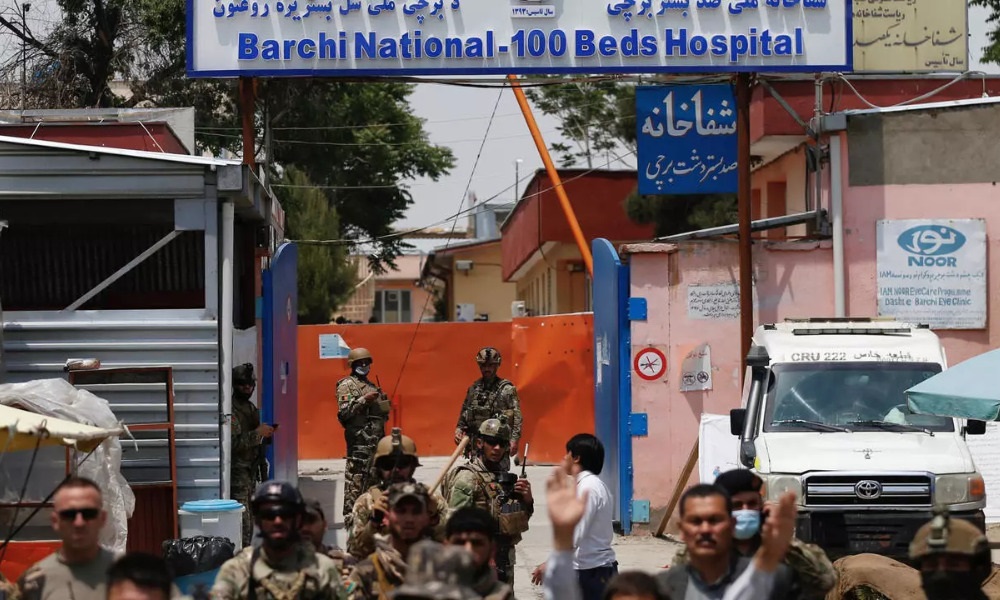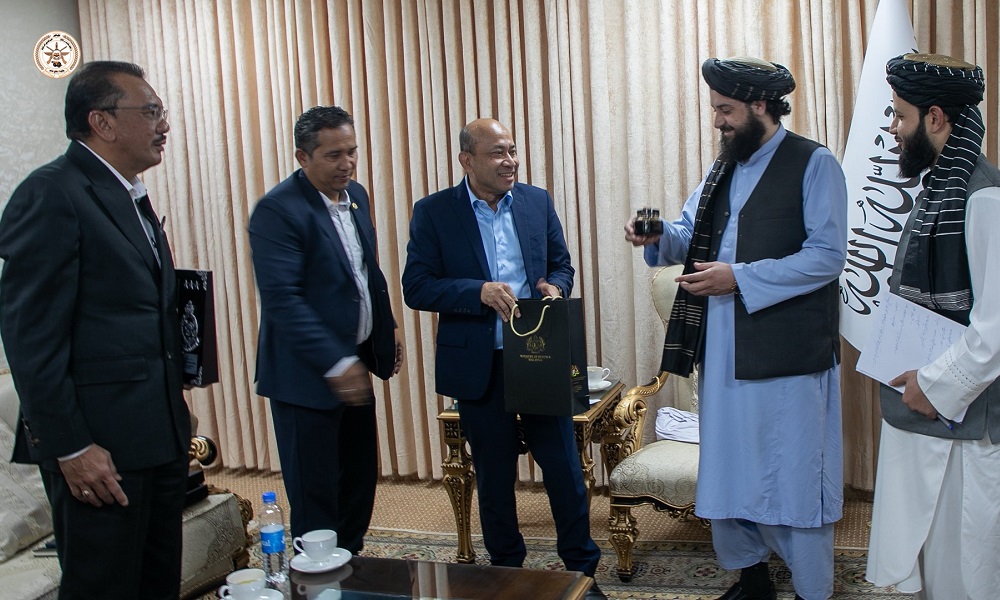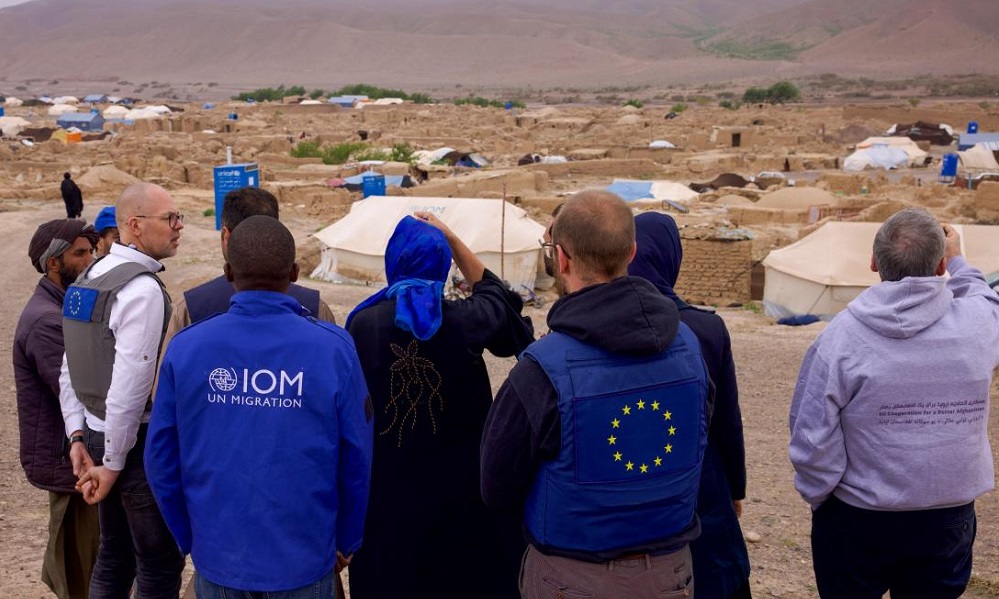Latest News
MSF withdraws from Dasht-e-Barchi after deadly attack on maternity ward

The international medical humanitarian organization Doctors Without Borders/Médecins Sans Frontières (MSF) announced that it has decided to end activities and withdraw from Dasht-e-Barchi hospital in Kabul, the MSF said.
In a statement released on June 15, the organization said that the decision was taken following the brutal attack on our maternity wing on 12 May, in which 16 mothers were systematically shot dead. An MSF midwife, two children aged 7 and 8, and six other people present at the time of the attack were also killed.
Dasht-e-Barchi #Afghanistan – While we don’t know who was responsible for the attack, we know enough to realise that patients, health workers and humanitarian activity were targeted, and that similar attacks may occur again in the future.https://t.co/gsZc6NvPxG
— MSF International (@MSF) June 15, 2020
“The decision comes with the understanding that while no information has emerged about the perpetrators or motive of the assault, mothers, babies, and health staff were the deliberate targets of the attack and that similar attacks may occur in the future,” the organization said.
“We have to accept reality… to remain would mean to factor in such loss of human lives as a parameter of our activity, and this is unthinkable,” said Thierry Allafort-Duverger, MSF Director-General.
“We were aware that our presence in Dasht-e-Barchi carried risks, but we just couldn’t believe that someone would take advantage of the absolute vulnerability of women about to give birth to murder them and their babies,” says Thierry Allafort-Duverger, MSF Director-General. “But it did happen.”
“Today, we have to accept reality: higher walls and thicker security doors won’t prevent such horrific assaults from happening again,” says Allafort-Duverger. “To remain would mean to factor in such loss of human lives as a parameter of our activity, and this is unthinkable.”
MSF further said that it was looking into ways to support local initiatives aimed at improving access to healthcare as the security conditions have forced the organization to withdraw from Dasht-e-Barchi.
The end of MSF’s activities in the maternity wing of Dasht-e-Barchi hospital is a necessary but painful decision, fraught with consequences for more than one million people who live in the area. Most of them are from the Hazara community, a historically marginalized and poor population, many of whom were displaced by decades of conflict.
Médecins Sans Frontières withdraws from Dasht-e-Barchi.
Following the brutal attack of 12 may, which killed 16 mothers and a midwife, @MSF has announced today its decision to end activities and withdraw from Dasht-e-Barchi in Kabul.
(1/3)
— MSF Afghanistan (@MSF_Afghanistan) June 15, 2020
MSF has been working in Dasht-e-Barchi in collaboration with the Ministry of Public Health since November 2014, providing free-of-charge maternity and neonatal care in one of the most densely populated areas of Kabul.
Latest News
Tripartite trade meeting held in Kabul to boost regional connectivity

A tripartite meeting between the delegations of Afghanistan, Turkmenistan and Kazakhstan was held in Kabul with the aim of connecting North Asia to South Asia and reducing transit and transportation costs among these three countries, the Ministry of Trade and Commerce said in a statement.
In this meeting, an agreement was reached on the creation of a joint technical committee to continue the talks.
This tripartite meeting was held under the leadership of Nooruddin Azizi, the Acting Minister of Industry and Commerce, Vice President of Turkmenistan and Srik Zhumangarin, the Deputy Prime Minister of Kazakhstan.
Earlier, a bilateral meeting was held between the delegation of the Islamic Emirate and Turkmenistan. The ministry of commerce said the participants of the meeting discussed the construction of a large joint logistics center in Torghondi, the trilateral transit agreement between the IEA, Turkmenistan, and Kazakhstan, the expansion of Afghanistan’s railway, solving issues related to Afghan transit and export goods, and a number of other commercial issues.
Latest News
No destructive groups including Daesh present in Afghanistan: Yaqub Mujahid

Acting Minister of National Defense Mohammad Yaqub Mujahid has said that no destructive groups including Daesh have physical presence in Afghanistan, adding the Islamic Emirate of Afghanistan (IEA) will not allow anyone to pose threat to any country in the region from the Afghan soil.
Mujahid made the remarks in a meeting with a delegation from Malaysia in Kabul on Thursday.
According to a statement released by the Ministry of Defense, Mujahid highlighted Malaysia’s “good treatment” of Afghan refugees and its long-standing relations with Afghanistan, and said that Malaysia is a powerful Islamic country and visits should increase.
He added that with the establishment of the Islamic Emirate, occupation and war ended in Afghanistan, and the country is fully secure.
Based on the statement, the Malaysian delegation called Afghanistan a friendly country and while emphasizing on comprehensive cooperation, it assured that what they have seen in Afghanistan will be shared with the authorities of their country.
Latest News
EU allocates 17 million euros to support Afghans on the move

The European Union signed an agreement worth 17 million euros with the International Organization for Migration (IOM) to improve access to basic services, increased economic opportunities and protection for Afghans on the move and their host communities in Afghanistan.
The needs of women and girls are a particular focus of the programme, EU said in a statement released on Thursday.
The statement noted that from January 2023 until April 2024, over 1.5 million Afghans returned from Pakistan and Iran.
“I am deeply moved by the hardship returnees face when being deported to Afghanistan. In a country suffering from poverty and climate change, and in a city that just saw devastating earthquakes, this truly is a crisis within a crisis.”, said Peteris Ustubs, Director for the Middle East, Asia and Pacific of the European Commission’s Department for International Partnerships during the signing ceremony at the IOM transit centre in Herat.
Raffaella Iodice, EU Chargée d’Affaires a.i. to Afghanistan, added “The solidarity of the Afghan people towards their brothers and sisters is an inspiration. We must assure that communities hosting and helping new arrivals are supported. The partnership with IOM ensures access to essential services and provides protection for Afghan returnees and their host communities. As women and girls can be particularly affected, we make sure that all members of society can benefit”.
“IOM’s continued partnership with the EU has been critical in enabling our teams to reach hundreds of thousands of Afghan returnees and other vulnerable communities in the country”, said IOM Afghanistan Chief of Mission, Maria Moita. “Thanks to this renewed commitment, we will be able to focus on addressing the immense challenges in the areas of return and contribute to reintegration, social cohesion, and longer-term solutions for those communities.”
This additional contribution is part of a 5-year programme that is being implemented across Afghanistan and in four countries in the region. It builds on the EU’s previous support to IOM to improve the wellbeing of Afghans forced to return to the country, EU said.
-

 Latest News3 days ago
Latest News3 days agoRashid Khan named AWCC’s brand ambassador
-

 Regional4 days ago
Regional4 days agoIranian president lands in Pakistan for three-day visit to mend ties
-

 Sport4 days ago
Sport4 days agoKolkata beat Bengaluru by one run in IPL as Kohli fumes at dismissal
-

 Sport4 days ago
Sport4 days agoACL: Aino Mina 3-0 Istiqlal Kabul; Attack Energy 3-0 Khadim
-

 Climate Change4 days ago
Climate Change4 days agoRescuers race to reach those trapped by floods in China’s Guangdong
-

 Business5 days ago
Business5 days agoAfghanistan, Kazakhstan to hold joint expo in Kabul
-

 World3 days ago
World3 days agoMalaysian navy helicopters collide in mid-air, 10 killed
-

 Sport3 days ago
Sport3 days agoJaiswal ton powers Rajasthan to big IPL win
























